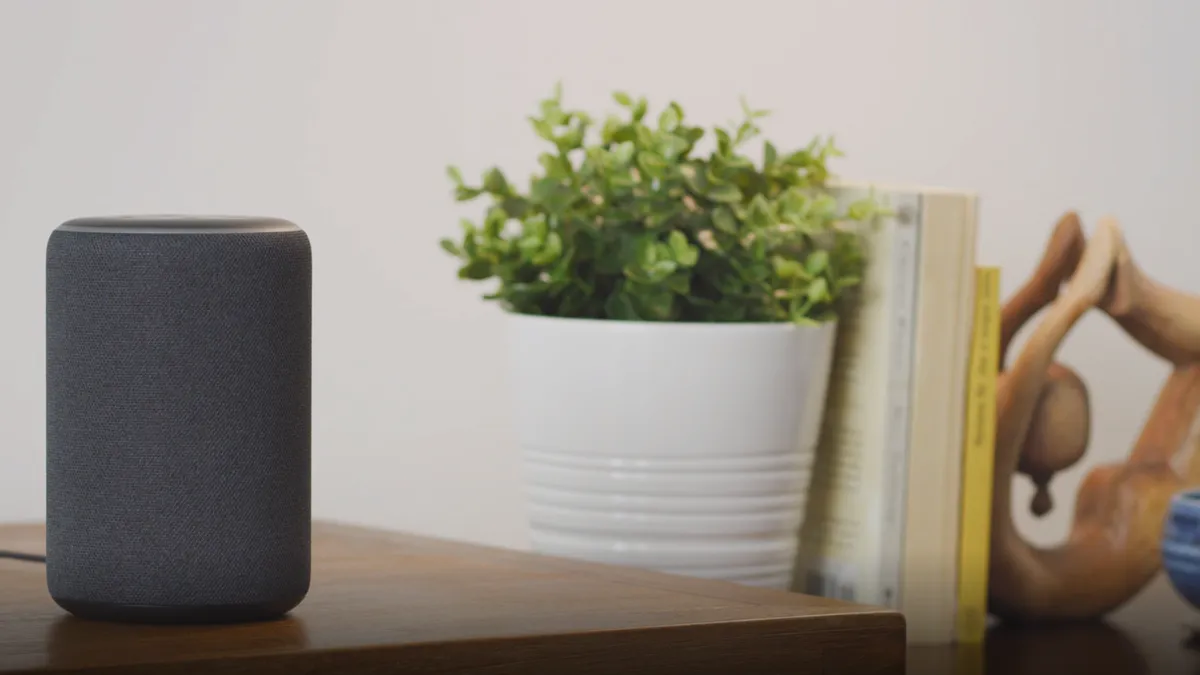Brief:
- Virtual assistants that respond to voice queries are less capable of answering questions correctly than they were two years ago. Those limitations may indicate that current technologies have reached a peak, per a study that consulting firm Perficient shared with Mobile Marketer.
- Amazon's Alexa, Apple's Siri, Google Assistant and Microsoft's Cortana answered fewer questions correctly than they did in past studies. Google Assistant, which performed best on a smartphone, provided "full and complete" answers to questions 89% of the time, a slight decline from almost 100% in 2017. The search giant's virtual assistant performed slightly worse on Google Home and Google Home Hub devices, Perficient found.
- Despite the decline, Google Assistant performed better than Alexa, whose correct-answer rate slipped to 79% from more than 90% in 2017. Siri fell to 70% from more than 80% two years ago, while Cortana plunged to 53% from almost 90% in 2017. However, Cortana was the best at trying to find the correct answer instead of responding with "I'm still learning" or "Sorry, I don't know that."
Insight:
Google Assistant is shaping up to be the smartest kid in summer school as virtual assistants become less effective at answering questions. That's a significant setback for the technology, considering that looking up information is the core reason people use virtual assistants. The most common uses for the voice-powered technology are searching for a quick fact (68% of users), asking for directions (65%), searching for a product or service (52%) and searching for a business, Microsoft found in a separate study of consumers. Shopping, product research, contacting customer service and accessing financial information remain less popular activities as consumers are still growing comfortable with the nascent tech.
In evaluating the capabilities of virtual assistants, Perficient asked all of them questions like, "When was the last time the Bruins won the Stanley Cup?" Siri answered that the Bruins won game 6 in the 2019 Stanley Cup series, but failed to provide the correct answer of 2011. Perficient also asked, "What is the oldest city?" Google Assistant responded, "Oops…Can you try again?" Google's search engine indicates that Damascus is believed to be the longest continuously inhabited city, which isn't 100% correct either. When Cortana was asked, "What is sales tax in California?" it responded with a fact box showing the state's population and other information.
Perficient's findings suggest that tech companies need to drastically improve the technology to make it more reliable in answering users' questions correctly. That not only includes understanding how people talk, but also finding correct information that people are looking for. In that respect, Google Assistant still demonstrated the strongest capabilities in answering almost 90% of questions correctly, which aligns with its corporate mission of organizing the world's online information.
Despite their declining skills, the number of voice assistants in use is forecast to jump threefold to 8 billion by 2023 from 2.5 billion at the end of last year, according to Juniper Research, potentially opening a huge opportunity for mobile marketers looking to be integrated in these platforms and reach tech-savvy consumers.












